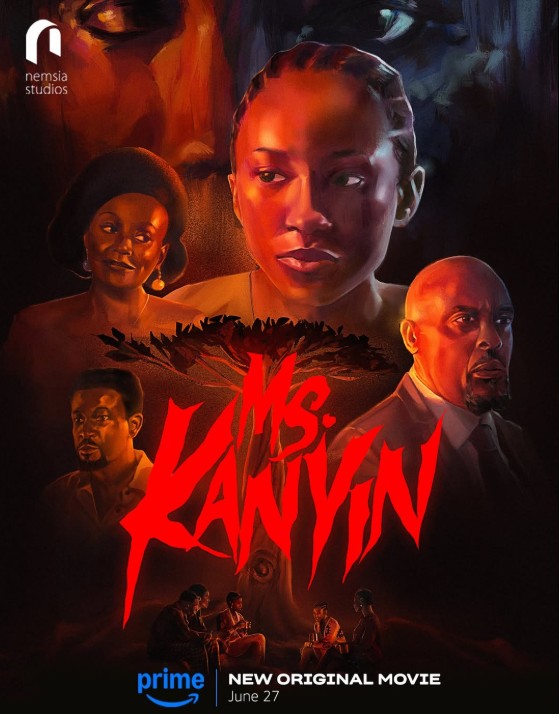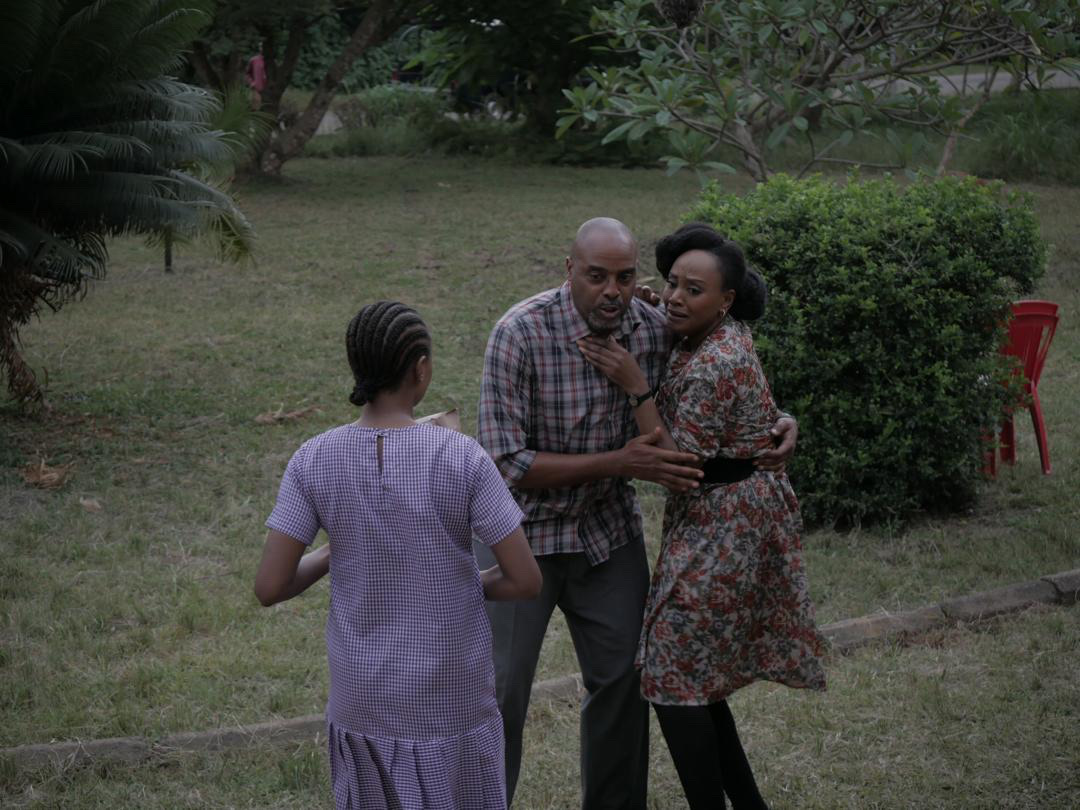Ms. Kanyin reflects the current state of Nollywood’s horror ambitions: bold ideas, impressive technical strides in some areas, but a lack of narrative discipline and thematic coherence.
By Joseph Jonathan
Nigerian boarding school folklore has long been haunted by the whisper of high heels in dark hallways: Madam Koi Koi, the ghostly figure said to roam dormitories in the dead of night. It’s a tale passed from senior students to the juniors with equal parts fear and fascination, often whispered under torchlight after lights-out.
Ms. Kanyin, a supernatural thriller directed by Jerry Ossai, attempts to reimagine this infamous myth in cinematic form. But in doing so, it falls into a trap familiar to Nollywood’s forays into horror: a strong premise undercut by underdeveloped characters, choppy storytelling, and a baffling lack of internal logic.
Set in the 1990s at Sterling Academy, Ms. Kanyin introduces us to Amara (Temi Otedola), a high-achieving student whose dreams of attending Harvard are threatened when her French teacher, the titular Ms. Kanyin (Michelle Dede), gives her a grade she considers damning.
Alongside her friends, Amara hatches a plan that involves breaking into Ms. Kanyin’s chalet, and the consequences unleash a sinister force that begins to consume the school and the surrounding community.

That description, while intriguing, reveals just a fraction of what the film throws at you. Ms. Kanyin is packed with subplots—some promising, others perplexing—that never quite cohere into a focused narrative. Instead of enriching the story, they muddy it.
By the time the credits roll, you’re left asking not just “What happened?” but “Why did it happen that way?” and “To whom exactly?” The internal logic of the film collapses under its own supernatural weight. We’re told an ancient tree awakens after Ms. Kanyin’s blood is spilled upon it but the motivations of the spirit, the timeline of revenge, and even whether Ms. Kanyin is alive or dead, are never clearly established.
In one scene she levitates and flips a car; in another, she’s almost thwarted by a teenage boy holding a door shut. It’s not fear that grips you, it’s confusion.
That confusion is amplified by uneven storytelling. The film wants to be a horror, but rarely feels horrifying. It relies heavily on gore—slashes, gashes, severed limbs—all delivered through surprisingly decent special effects makeup.
The cinematography, particularly in the night scenes, helps to establish a mood that occasionally flirts with dread. But that mood never crystallises into real suspense, because the film skips the crucial steps of building tension and grounding character motivations. The jump scares are basic, the atmosphere undercooked, and the supernatural sequences feel more like detached set-pieces than integral parts of a lived-in world.
For a film that is eponymously titled, Ms. Kanyin tells us surprisingly little about its titular character. We’re offered vague allusions to trauma, and failed dreams, but none of it adds up to a fully-formed figure. What does she want? Is she the victim or the villain? Is she even alive? The film doesn’t seem sure, and as a result, neither are we.
The acting is equally uneven. Temi Otedola, who showed some promise in Citation (2020), seems to have regressed here, though that may be more a fault of the writing than her performance. Much of the dialogue feels like exposition delivered at the audience rather than conversations unfolding between people. The characters talk at each other, not to each other, with lines that lack emotional texture or realism.

The standout performances come from Ademola Adedoyin as Mr. Mustapha—despite his wavering Northern Nigerian accent—and Kalu Ikeagwu as the principal. Toluwani George also brings some heart to the role of Chisom. But they can only do so much with a script that seems more interested in plot devices than in people.
One of the film’s most troubling choices is the inclusion of a sexual assault scene involving Ms. Kanyin and a parent. The moment is presented without emotional weight or narrative consequence. It exists solely as a tool to justify later vengeance, reducing a serious issue to a disposable plot device. It’s a careless move, and one that highlights the film’s broader issue: its unwillingness to engage with its own themes in any meaningful way.
The characters’ motivations often make little sense. Amara, a prefect and overachieving student so morally upright that she must be blackmailed into breaking rules, suddenly becomes impulsive enough to mastermind a cheating scheme that involves breaking into a teacher’s home?
The narrative leap is jarring and unsupported. Then there’s her friend, Uti (Natse Jemide), whose entire subplot feels like a strange non-sequitur: he’s training for a 100m swim in what looks like a short school pool with no coach and no clear competitor(s). It’s played completely straight, but you’re left wondering whether the film is in on the absurdity or completely unaware.
More frustratingly, there are visible continuity errors that betray a lack of attention to detail, including a diary with the year 2024 in a film supposedly set in the 1990s. Even worse, boom mics make multiple appearances in the frame, a distracting technical flaw that undermines the immersion entirely.
There are flashes of something more: an attempt to explore themes of power, ambition, love (through Ms. Kanyin and Mr. Mustapha’s relationship), friendship (through Amara and her clique), loyalty, and buried trauma. There’s a budding romance, a hint of intergenerational conflict, and the idea that trauma can haunt spaces just as much as spirits can. But these elements are barely developed.
Instead, the film lingers on spectacle. Even that suffers from inconsistency, with poor editing, awkward cuts, and some amateur CGI effects that feel like a disservice to the solid work done by the makeup and costume departments.

Set in a boarding school, the film does succeed in evoking a kind of nostalgia for those who’ve lived that experience: the strict routines, the friendships, the fear of punishment. There’s something universally eerie about schools after dark, and Ms. Kanyin captures that atmosphere well. But even this strength is undercut by the lack of narrative clarity and a consistent horror tone.
In many ways, Ms. Kanyin reflects the current state of Nollywood’s horror ambitions: bold ideas, impressive technical strides in some areas, but a lack of narrative discipline and thematic coherence. Writers Tobe Otuogbodor and Ayoyemi Adeyemi show flashes of imagination, but the story needed more time, more shaping, more logic, more heart. By the end, the film leaves you with raw ingredients of a compelling supernatural story, but no satisfying dish.
Rating: 1.5/5
Joseph Jonathan is a historian who seeks to understand how film shapes our cultural identity as a people. He believes that history is more about the future than the past. When he’s not writing about film, you can catch him listening to music or discussing politics. He tweets @JosieJp3



